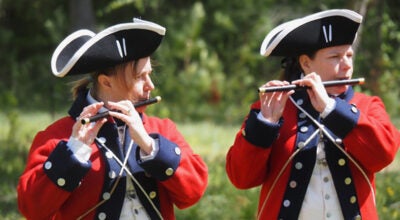Northampton approves new holiday
Published 6:25 pm Friday, August 7, 2020
|
Getting your Trinity Audio player ready...
|
JACKSON – Northampton County will recognize a new county holiday next year after a unanimous vote from the Board of Commissioners at their regular meeting here on Aug. 3.
“Tonight is history night for the Northampton County Commissioners,” remarked Board Chair Charles Tyner after listening to two presentations centering on historic events.
Arthur C. Grant, Jr., a former Rich Square native who does research on the county’s history, made the first presentation to share the story behind Northampton’s own unique “Juneteenth” event.
The Emancipation Proclamation was signed by President Abraham Lincoln on Jan. 1, 1863, but it was not until two years later that those words were fully carried out and all the slaves were freed. Juneteenth is recognized—in some places officially, and others unofficially—across the United States as a celebration of the date when the last of the slaves gained their freedom on June 19, 1865 in Texas.
But lesser-known history records, however, show that June 19 wasn’t the final date and some parts of the country took a little longer to grant freedom to slaves after the Civil War ended, including Northampton County. At the time, many former slaves were still working on plantations out of fear of retribution.
“On July 10, 1865, that system of oppression changed,” Grant said.
He explained there were records from the Northampton County Museum showing that a Union Army Major gathered the citizens at the courthouse in Jackson on July 10, 1865 to publicly read the proclamation of freedom for those still in bondage.
“July 10 was the day the former slaves could now make decisions for themselves and their families. A day when a pass wasn’t needed to step across a property line. A day many had only dreamed of but didn’t live to see it. I am a descendent of the people freed on this day,” Grant continued.
He detailed several of his relatives, including his great-great uncle and great-great grandfather, who all went on to buy land and raise their families in Northampton County after they gained their freedom.
Noting the historical significance, Grant requested the commissioners declare July 10 as a holiday for the county. He pointed out that the Bertie County Commissioners had recently declared Juneteenth as a paid holiday, becoming the second county in the state to do so.
“Northampton County has a rich history,” Grant continued. “Recognizing this day as a holiday would be the first step in including all of Northampton’s history, that which is glorified and that which is hidden.”
He concluded his presentation by reminding everyone that change starts “from the voices of our citizens across this country in small counties just like our Northampton.”
All five commissioners expressed their gratitude to Grant for bringing the matter to their attention.
“It was a day that was liberating for many of our citizens in Northampton County,” said Commissioner Geneva Faulkner, who noted that the event, although not well known, has shaped the history of the county.
“History is always good to know,” echoed Commissioner Kelvin Edwards.
Faulkner motioned for July 10 to be declared a holiday for Northampton County Local Government, and also to recognize it as “Liberation Day.” She also asked the county attorney to prepare a proclamation about it.
Commissioner Nicole Boone provided the second, and the vote was unanimously in favor.
Following that item on the agenda, Commissioner Joyce Buffaloe presented a resolution celebrating the 100th anniversary of the Nineteenth Amendment as well as the founding of the League of Women Voters.
The resolution briefly highlighted the women’s suffrage movement which began in 1848 and continued until the passage of the Nineteenth Amendment to the US Constitution, later ratified by the states in 1920. After the amendment granted women the right to vote, the League of Women Voters was created the same year to promote voter education and encourage registration.
Buffaloe continued reading the resolution which also recognized a Northampton County native, Louise Avent Lassiter, as an example of the struggles women and people of color faced when exercising their right to vote.
Lassiter was denied the right to register to vote in 1956 after being required to read a section of the US Constitution. She mispronounced three words, and subsequently was deemed “illiterate” and unable to register to vote. Lassiter later filed suit in the US District Court to stop literacy tests from being used to determine voter eligibility.
She lost that suit but continued to file appeals until it reached the US Supreme Court in 1959. Again, the court did not rule in her favor, but the case may have played a role in the passage of the Voting Rights Act of 1965 which prohibits racial discrimination in voting, including the use of literacy tests.
A quote from Lassiter in the resolution text explained her efforts to vote, saying, “If more people vote, I think we will have more freedom. It would give some of the colored a chance to run for different offices and it would cause white people to pay more attention to the rights of the colored.”
Buffaloe concluded her presentation by noting that women now make up a majority of voters in North Carolina and are more active in the election process than ever before.
Edwards motioned to adopt the resolution and Faulkner seconded. The motion passed with a unanimous vote.
“We’ve come a long way,” Tyner pointed out.


